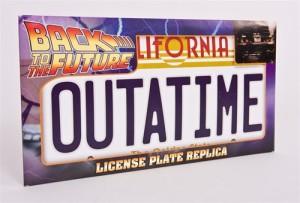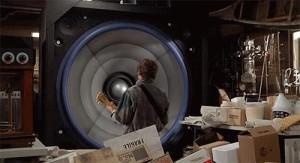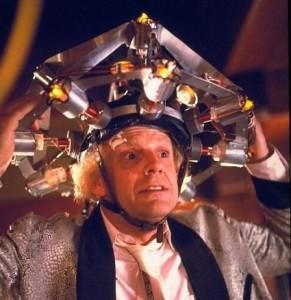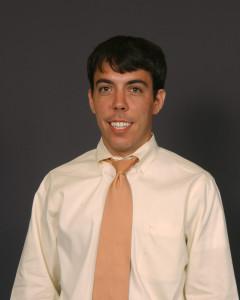
Get the latest articles delivered directly to your inbox!
Our Contributors
Class of 2022
Kyle Duke
Austin Foster
Charlotte Leblang
Ross Lordo
Class of 2021
Dory Askins
Connor Brunson
Keiko Cooley
Mason Jackson
Class of 2020
Megan Angermayer
Carrie Bailes
Leanne Brechtel
Hope Conrad
Alexis del Vecchio
Brantley Dick
Scott Farley
Irina Geiculescu
Alex Hartman
Zegilor Laney
Julia Moss
Josh Schammel
Raychel Simpson
Teodora Stoikov
Anna Tarasidis
Class of 2019
Michael Alexander
Caitlin Li
Ben Snyder
Class of 2018
Alyssa Adkins
Tee Griscom
Stephen Hudson
Eleasa Hulon
Hannah Kline
Andrew Lee
Noah Smith
Crystal Sosa
Jeremiah White
Jessica Williams
Class of 2017
Carly Atwood
Laura Cook
Ben DeMarco
Rachel Nelson
Megan Epperson
Rachel Heidt
Tori Seigler
Class of 2016
Shea Ray
Matt Eisenstat
Eric Fulmer
Geevan George
Maglin Halsey
Jennifer Reinovsky
Kyle Townsend
Join USCSOMG students on their journeys to becoming exceptional physician leaders.

1.21 Jigawatts!! or “How to Stay Grounded While in Medical School”
But First…A Lesson in Time Travel (AKA Medical School Matriculation)
Great Scott!! You’ve just walked into 1985…or is it 1955…or 2015? Don’t worry, everything will work out just fine, you haven’t caused a rift in the space-time continuum or created a problem with the earth’s gravitational pull…but before we make any more covert jokes or pop culture blunders, let’s be clear: this is a virtual time travel machine, so you have nothing to worry about while reading this blog (other than your normal vulnerabilities to the time-suck that is the Internet). Try to think of this as a satirical post written by a medical student who likes Hollywood endings and hopes to briefly entertain you with a light-hearted personal yarn about what medical school is like (albeit from a unique perspective, just to mix it up a bit). Serious readers beware…just remember, laughter is the best medicine sometimes. Ready?…Here we go!
One: What is Medical School Really Like? (Are we really just “too darn loud” about our own slackness, or is med school just heavy like that?)
You may not have realized it, but if you’re a medical student and you’re reading this post, you are a time traveler. Maybe you’re not warping to different decades in the traditional “Marty McFly” sense perhaps, but you have indeed entered the realm of warp-speed studying and psychedelic (caffeine-induced?) dreams that only post-exam hibernation can bring. And if you know someone who is in medical school, you are also experiencing a similar jet-lag-type phenomenon. This likely occurs if and when you bump into your loved one as they stumble out of a smoking vehicle (not unlike a DeLorean) that relies on a unique homemade fuel-blend of studying, auscultating, dissecting, memorizing, and (sometimes) napping in order to conduct him or her from the realm of pre-medical naivety to a bright future of medical expertise.In all seriousness, being in medical school is like completing a long-distance race that has all sorts of unique challenges and obstacles along the way (think of what it might be like to run every type of 5K race out there all at once…Zombie-Trampoline-5K-CrossFit-Mud-Run, anyone?) At any rate, you don’t really know what it involves when you sign up for your initial training, but it’s certainly going to transport you into a new dimension, which will probably alter you forever. Indeed, I have found that most of my colleagues admit that their current schedules are “outta time” when compared to their pre-medical calendars (usually due to the increased academic workload, but at minimum they admit to being somewhat busier with clinical skills requirements than ever before).
The calendar of a typical med student is so full of cramming, crashing, caffeine-ing, collapsing, and then careening back into another lecture that it often feels like breaks and naps are literal high-fives from your brain, while three-hour presentations and making countless study cards are just…heavy (even with a Pepsi Perfect!).
So, how is a med student to communicate this admittedly tumultuous experience with loved ones without either a) seeming out of touch with reality or b) losing so much time trying to catch up or have a “real life” that your studying and academics suffer? (Note: this is actually a considerable issue and can contribute to stress and even lead to pre-burnout scenarios if the lack of communication is severe enough to hinder a student’s vital connection with their family/friends/social life/“real world”.) In other words, how do you explain time travel within the alternate universe that is medical school? To answer that, let’s take a little trip back into the past and take a look at the typical pre-medical calendar.
Two: How is Medical School Stressful? (Really?…it can’t be that bad…)
Back in your mental time machine, let’s wind the clock back to our undergrad/pre-medical school days…imagine yourself as your favorite medical student, preparing for the dreaded MCAT exam in a few months. The sounds of TSwift, Kanye, Green Day (or, for our even “wiser” classmates, perhaps NSYNC or even Michael Jackson himself!)softly croon from a nearby desk radio. You look at your study calendar and notice you will take the MCAT exam in only a few weeks. Suddenly it dawns on you: this is one of the first exams you’ll ever take where multiple hard sciences are tested at a standardized level (after all, most AP science courses, SAT subject tests and even undergraduate exit exams for science majors all tend to fall within just one major discipline such as chemistry, physics and biology. Many even fit within a subsection such as biochemistry, microbiology, etc.) Panning around the room, you quickly scan the tall stacks of your ridiculously expensive pre-made flashcards and brightly colored MCAT study books. Then you begin to wonder, Once I take the MCAT, can I at least take a break? Hopefully I won’t have to crack a book for at least three whole months after this exam before I start school again in the fall! Or maybe you even briefly entertain the intoxicating notion, Well, at least I’ll never have to take a test like this again!…Great Scott!
You naïve youngster…you will soon find during your future medical training that this is so far-fetched, even Biff Tannen would chuckle at your bad joke (before smacking you on the head, of course!). Here’s the dish: the difference between many pre-medical schedules and the typical medical school curricula is that many pre-medical programs actually build time into the students’ schedules for volunteering, community service, family time, personal breaks and even vacation. If my calculations are correct, this is much more difficult in medical school for many reasons, some of which are dependent on the curricula of different medical institutions. However, few of these reasons seem to comfort the medical student when he/she desperately wants to while away the days on a shoreline or maybe just play around with a guitar amp for a while.
Not unlike the enormous amount of power required to run this massive amp, medical school schedules include a vast ocean of studying, lectures, labs and exams with only limited vacations (or else med students would never get enough knowledge in four years before making it to the real world of medicine as practicing physicians!)So, the stress is often due to the fact that medical school is not unlike the horror you feel watching a truckload of manure pile into your new time-traveling convertible. (Get it?…because the convertible represents your “time”…:-P )
The reasons for this are frankly beyond my comprehension (and paygrade!), but I believe it has something with needing to be prepared for certain medical licensing exams-that-shall-not-be-named. However, this exercise in warp-speed studying can be good training in handling stress for future responsibilities—indeed, several clinicians have commented that their residency training and early careers are/were some of the busiest times of their lives, even when compared with the hectic schedule and frantic studying required to succeed in medical school. Thus, as a medical student, I know that I am not “over the hump” yet…so the question becomes, as a 1st/2nd/3rd year medical student who is, as of yet, experiencing the most difficult scheduling challenge in life (so far), how does one stay grounded? Or, to put it another way, how do you avoid becoming presently paralyzed by fear of the past (“Are my scores good enough to get into a good residency?”) or worry about the future (“Will I be able to handle the stress of being a real doctor?”) To answer that, let’s get a brief glimpse at what our future may hold…
Three: How to Deal With Medical Career Stress? (Maybe 4×4 trucks aren’t all they’re cracked up to be, but what about 4.0’-s and 244s?!)
So this is where I had planned to share some extremely helpful advice/sage wisdom (or at least a little Facebook-gleaned pithiness) that fills your heart, puts a spring in your step and fills you with a spark of new life. Ready? Here it is…I don’t have the perfect one-size-fits-all answer! (Am I allowed to say that in medical school?) The truth is, whatever made you a nice, humane, empathetic person when you applied and interviewed for medical school is very likely one of the same things that should continue to compel you toward success. Of course, you will add that to the skills and help you gain from doctors and other teachers and friends along the way, and hopefully that will include things like maintaining good nutrition, getting adequate exercise and finding at least some personal time in our crazy med school life. Admittedly, it may be a struggle to maintain a minimum level of human dignity at times, (or at least minimal levels of body odor while sitting your exams), but I believe that “thing” is enough to fuel your engine even when you’re in the throes of anatomy dissecting and pharmacology memorization. (This is also the point in the blog where, if you have done your homework or at least built a mind-reading helmet so you can channel Doc Brown’s brilliance, it should be obvious that the theme song/80’s ballad “Power of Love” should be playing ephemerally in your mind).
In other words, I literally cannot name one student at my medical school (or any medical student I know, for that matter) who would not compose a downright impressive resume regardless of what they choose to do with their amazing futures. However, I think perhaps within the medical training field, students can sometimes battle with our own expectations so often that we seem to fade a little in our own eyes and lose a little bit of juice. Maybe it is just the fact that as first/second-year medical students, our own ability to care for others is trifling, at best, when compared to the great examples that lie before us in a long history of medical care. Or, even more modestly, maybe we just lose sight of the simple fact that nothing can take away the privilege of life we have all enjoyed thus far (which also applies to anyone reading this post and breathing simultaneously) as well as the hope for new opportunities and challenges that tomorrow promises. After all, the next exam hasn’t happened yet, nor has the next stage of medical training, nor (for the older medical residents or physicians) has the impending doom of changes in EMRs or insurance reimbursement managed to destroy our healthcare systems completely as of yet!
So, the best advice I have as a lowly medical student is simply to relax and pursue the calling or dream that led you to medical school in the first place. Many of my colleagues in medical school have admitted that their best performances in medical school (and also in life) often come once we let go of other’s expectations and rather do things that work for us, instead of trying to adopt someone else’s “high-yield” approach simply because it worked for another person. On a broader level, I think we all benefit when we remember that after all, not every type of fuel powers every engine…sometimes it takes plutonium, but if not that then maybe a flash of a lightning, and if not that then perhaps some old banana peels…or sometimes you even have to build your own steam engine and say “I think I can” all the way through three months of histology if you’re all out of options!
Finally…just remember, no one should know too much about their own future…but you should definitely make it a good one!
PS: Even though I’m a (former?) English major, I am not necessarily a good blogger…blame it on Dickens. (However, all media sources are cited as hyperlinks within the images/links and are not owned by me or USCSOMG, just for all you MLA /citation lovers out there.)
PPS: IF you can count all of the Back to the Future puns in this blog and email it to the author, a special type of recognition/certificate will be emailed to your inbox to let your friends know how “heavy” you really are!
I’m from nearby Seneca, SC [Go Bobcats!] and am amazed to have the opportunity to complete my medical school journey so close to home here at USCSOMG. I admire many things about our school, including the goal of preparing highly skilled doctors for both big and small town venues so that all types of areas and populations can receive quality healthcare. I graduated with a B.A. in English from Furman University in 2011 and was also able to enjoy teaching high school chemistry for three years prior to enrolling at USCSOMG. I am humbled by this challenge and I hope you are encouraged by my reflections on our medical education.
Transforming Medical School Blog
Copyright 2021 USC School of Medicine Greenville







